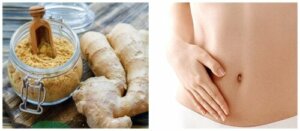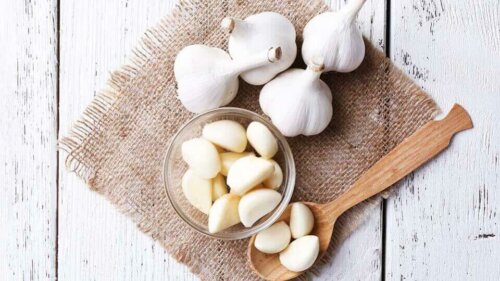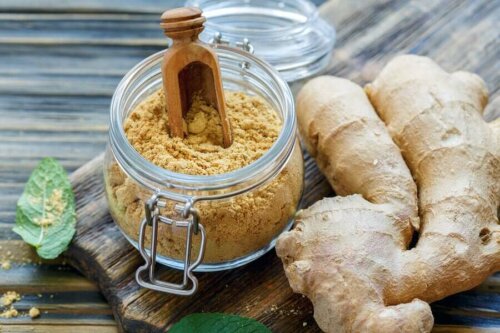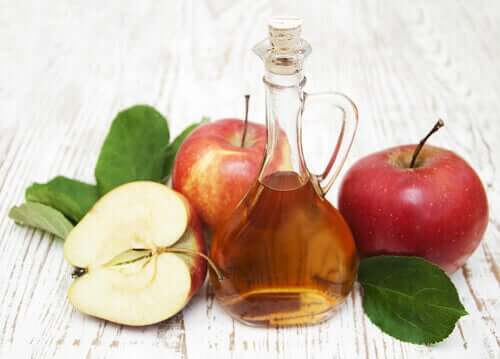Say Goodbye to Parasitic Infections with 7 Natural Remedies

Parasitic infections are more common in rural and under developed areas. They can easily enter the body through the mouth or skin (depending on the type of parasite).
Infection usually occurs when people consume contaminated food or water. However, it can also occur when engaging in sexual activity involving contact between the mouth and anus.
In this article, we’ve included six natural remedies for parasitic infections that are highly effective at both preventing and deterring this condition.
Natural remedies for parasitic infections
According to popular beliefs, the following remedies can help get rid of parasitic infections. However, there’s no scientific evidence to support these beliefs.
Therefore, the best thing to do to treat a health problem, of any kind, is to have a medical check-up and follow medical advice.
1. Garlic

Some say that eating garlic as part of a healthy diet, due to its allicin content, could help get rid of parasitic infections.
One of the best-known diets in the world has garlic as the main ingredient: the Mediterranean diet. Check with your doctor to see if this is the right choice for you.
2. Papaya seeds to treat parasitic infections
People say that pulverized papaya seeds can help get rid of parasitic infections since they contain anti-parasitic properties.
- To take them as a remedy you need to crush or mash them and eat them on an empty stomach for several consecutive days
- You can also mix them with the juice of the papaya
3. Pumpkin seeds
Furthermore, people also say that eating pumpkin seeds (natural, roasted, fried, or salted) can support intestinal transit and, at the same time, facilitate the elimination of parasites. This is due to the ethanolic extract contained in its seeds, as explained in this article, which confirms its antiparasitic effect similar to the drug mebendazole.
According to popular belief, if you’re already infected, it’s recommended to consume 30 raw pumpkin seeds every day on an empty stomach. You can also crush them and have them for breakfast.
Read about the Liver Cleanse Diet
4. Annatto seeds (Bixa orellana L.)
A pigment, annatto, essentially composed of carotenoids, is extracted from annatto, used to color foods and beverages. However, studies revealed that the extract has several pharmacological properties. Among many other benefits, it’s antitumor, anti-inflammatory, antiseptic, antimicrobial, and antiparasitic.
In experimentation, the ethanolic extract of the seeds of bixa orellana against positive samples of intestinal parasitism obtained an efficacy of 99 percent. Stigmasterol is the most potent antiparasitic and antimalarial compound in annatto seeds.
The achiote seed coat has 3 percent of wax-like substances that act on parasites by paralyzing them. To take advantage of its health properties as an infusion, use about 20 grams of seeds or leaves of bixa are for every quart of water. Furthermore, drink it during the course of the day.
5. Ginger

According to a study published in 2015, ginger has antiparasitic properties effective against Toxoplasma gondii, Giardia lamblia, Trypanosoma brucei brucei, and Blastocystis species.
- If your doctor authorizes its consumption, you can drink a ginger infusion in the morning, after breakfast.
- To use it as a preventative, you could use it in moderation as a condiment for various dishes, sweet as well as savory. It enhances the flavor and increases the juiciness of food.
6. Cloves
This is a spice with a powerful smell. People include it in all kinds of recipes. But there’s no scientific evidence that it can help deter microbes, bacteria, viruses, and parasites. However, many people recommend its consumption to eliminate said microbes.
Chew a clove in the morning on an empty stomach every day. This will supposedly help to get rid of parasites and their eggs.
7. Apple cider vinegar

Some people believe that drinking a little apple cider vinegar diluted in water every day can help you get rid of parasitic infections. However, scientists haven’t proven this remedy to be effective. Still, some encourage it.
We recommend pure, organic apple cider vinegar, non-filtered or pasteurized. This way you’ll be sure its content of enzymes and probiotics are still intact.
Learn to make these Five Delicious Detox Soups to Cleanse Your Body
What about medication for parasitic infections?
Regarding treatment against parasitic infections, researchers Chelsea Marie and William Petri say that “some drugs (anti-parasitic) are specially designed to eliminate parasites. Or, in the case of some worm infections, reduce the number of parasites so that symptoms disappear. In addition, certain antibiotics and antifungal drugs are effective against some parasitic infections.”
However, there’s no drug that’s effective against all types of parasites. Thus, you cannot use the same treatment for every case. Hence the importance of having a medical check-up and following medical instructions.
Finally, the infection will go away on its own and won’t require treatment in some cases.
All cited sources were thoroughly reviewed by our team to ensure their quality, reliability, currency, and validity. The bibliography of this article was considered reliable and of academic or scientific accuracy.
- Apt, W., Condes, L., & Biom, C. (2014). Infecciones Por Parásitos Más. Revista Medica Clinica Condes. https://doi.org/10.1016/S0716-8640(14)70065-3
- Cortés-Rojas, D. F., de Souza, C. R. F., & Oliveira, W. P. (2014). Clove (Syzygium aromaticum): a precious spice. Asian Pacific journal of tropical biomedicine, 4(2), 90-96. https://www.ncbi.nlm.nih.gov/pmc/articles/PMC3819475/
- García, E. M., González, V. H., Atariguana, G. C., Núñez, T. D. C., Pesántez, F. F., & González, K. Evaluación In vitro del potencial antihelmíntico de extractos de Plantago major y semillas de Carica papaya, usando como modelo experimental Caenorhabditis elegans. Ciencia e Investigación, 22(2), 9-16. file:///C:/Users/tito%20nu%C3%B1ez/Downloads/61500.pdf
-
Hidalgo, A. V., & Castillo, S. (2009). Uso de Bixa orellana L.(Achiote) como reactivo químico en muestras de heces con Parasitismo Intestinal de importancia médica. La Universidad, (5). https://revistas.ues.edu.sv/index.php/launiversidad/article/download/70/68/258
- Jenq, R. R., Ubeda, C., Taur, Y., Menezes, C. C., Khanin, R., Dudakov, J. A., … R.M. van den Brink, M. (2012). Regulation of intestinal inflammation by microbiota following allogeneic bone marrow transplantation. The Journal of Experimental Medicine. https://doi.org/10.1084/jem.20112408
- Lourido Pérez, H. D. L. C., & Martínez Sánchez, G. (2010). La Bixa orellana L. en el tratamiento de afecciones estomatológicas, un tema aún por estudiar. Revista cubana de farmacia, 44(2), 231-244. http://scielo.sld.cu/scielo.php?script=sci_arttext&pid=S0034-75152010000200012
- Macedo, M., & Blanco, J. (2008). Infecciones hospitalarias. Control. https://doi.org/10.1177/0886260518756117
- Maldonado Culquicondor, Y., & Perales Lapa, E. C. (2020). Efecto antiparasitario in vitro del extracto atanólico de las semillas de Cucurbita ficifolia Bouché (calabaza) en Ascaris lumbricoides. http://repositorio.uigv.edu.pe/handle/20.500.11818/4989
- Perez-Arellano, J., Hernandez, M., Pisos-Álamo, E., & Carranza-Rodríguez, C. (2007). Tratamiento de las enfermedades parasitarias (I): Protozoosis. Informacion Terapeutica Del Sistema Nacional de Salud.
- Rey Donado, W. A. Extracción de tocotrienoles a partir de la semilla de achiote (Bixa orellana), usando CO2supercritico como solvente [recurso electrónico] (Doctoral dissertation). https://bibliotecadigital.univalle.edu.co/bitstream/handle/10893/7902/CB-0478835.pdf?sequence=1
- Turnbaugh, P. J., Ley, R. E., Mahowald, M. A., Magrini, V., Mardis, E. R., & Gordon, J. I. (2006). An obesity-associated gut microbiome with increased capacity for energy harvest. Nature. https://doi.org/10.1038/nature05414
- Werner Apt, B. (2014). Infecciones por parásitos más frecuentes y su manejo. Revista Médica Clínica Las Condes. https://doi.org/10.1016/S0716-8640(14)70065-3
This text is provided for informational purposes only and does not replace consultation with a professional. If in doubt, consult your specialist.








